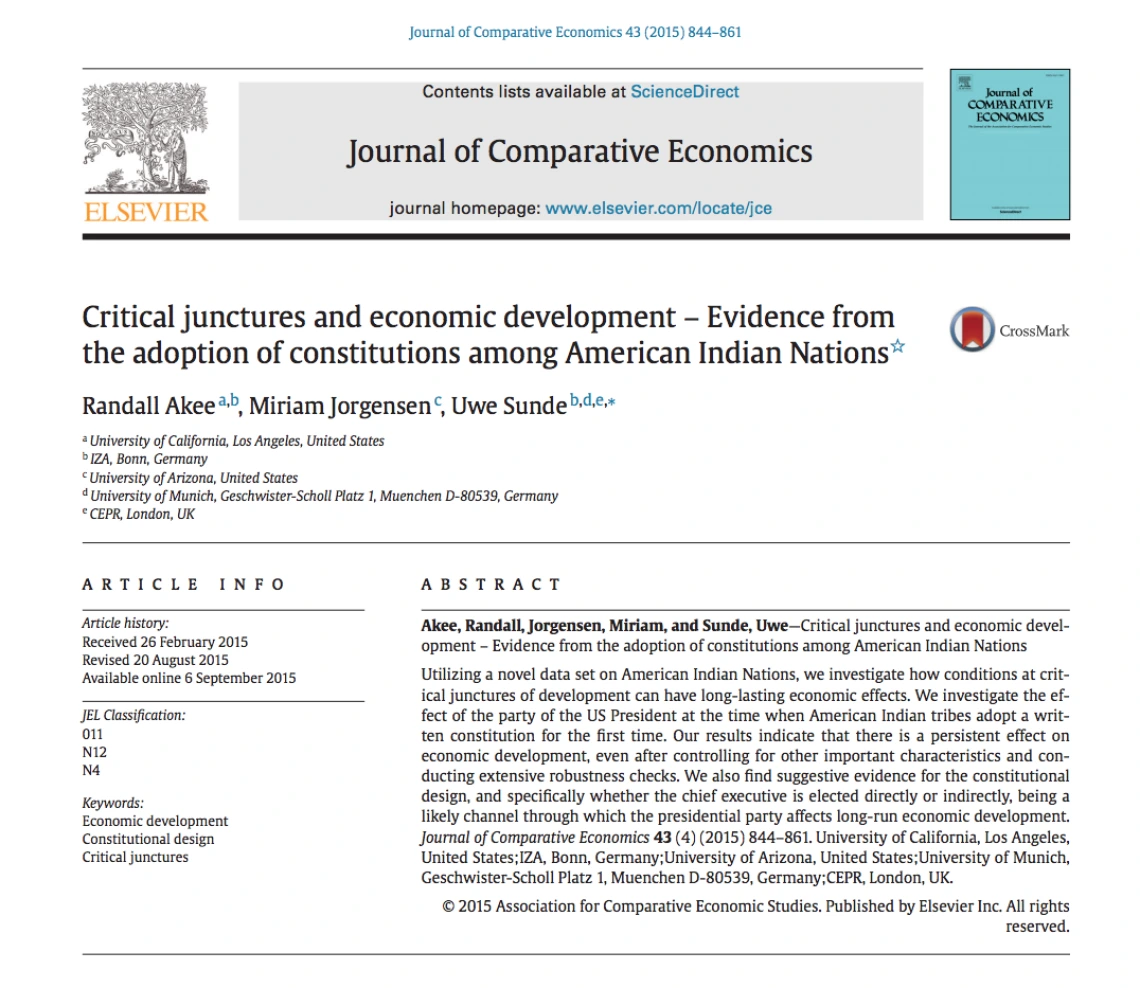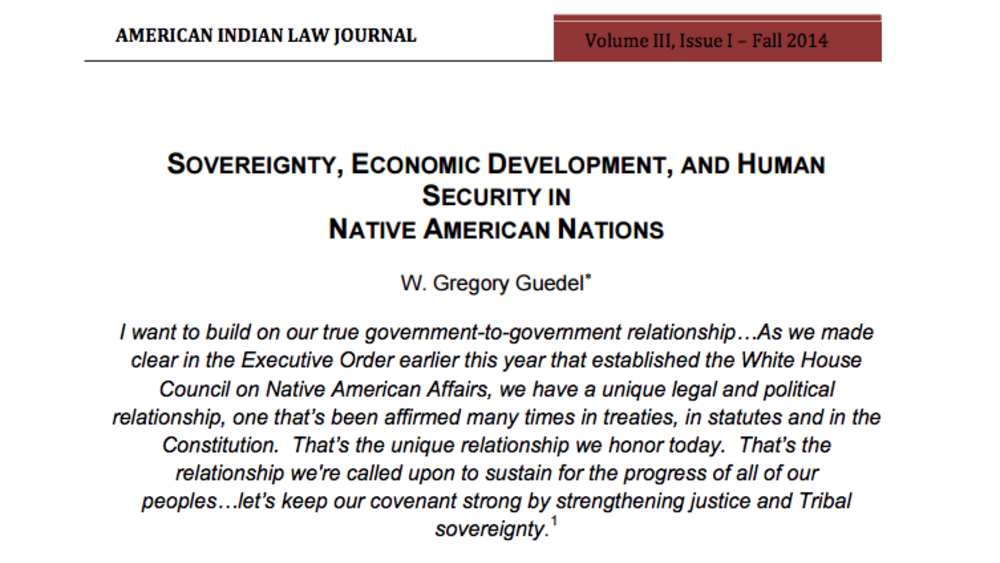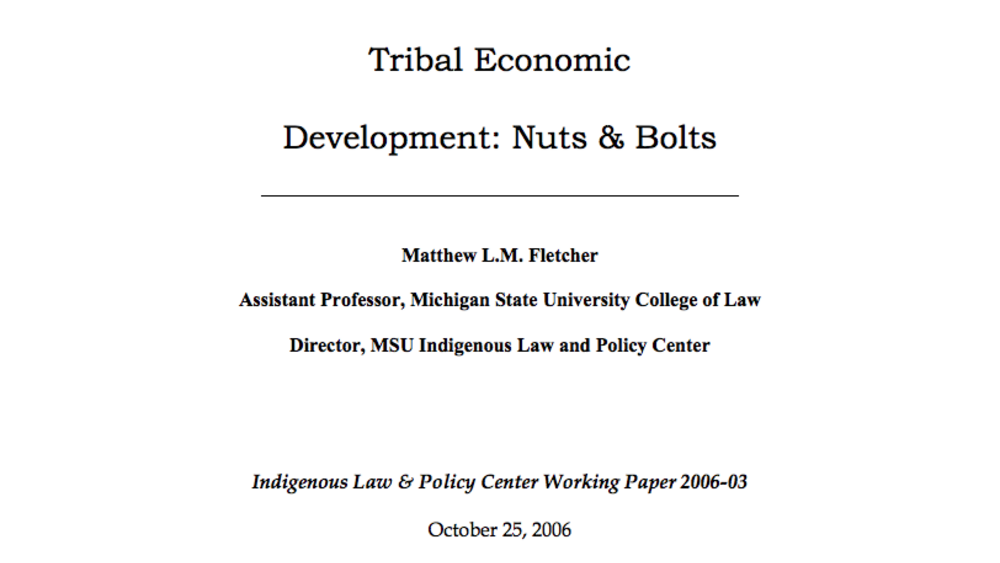Utilizing a novel data set on American Indian Nations, we investigate how conditions at critical junctures of development can have long-lasting economic effects. We investigate the effect of the party of the US President at the time when American Indian tribes adopt a written constitution for the first time. Our results indicate that there is a persistent effect on economic development, even after controlling for other important characteristics and conducting extensive robustness checks. We also find suggestive evidence for the constitutional design, and specifically whether the chief executive is elected directly or indirectly, being a likely channel through which the presidential party affects long-run economic development.
Additional Information
Akee, R., Jorgensen, M., & Sunde, U. (2015). Critical junctures and economic development - evidence from the adoption of constitutions among American Indian nations. Journal of Comparative Economics, 43(4), 844-861. doi: 10.1016/j.jce.2015.08.004.



